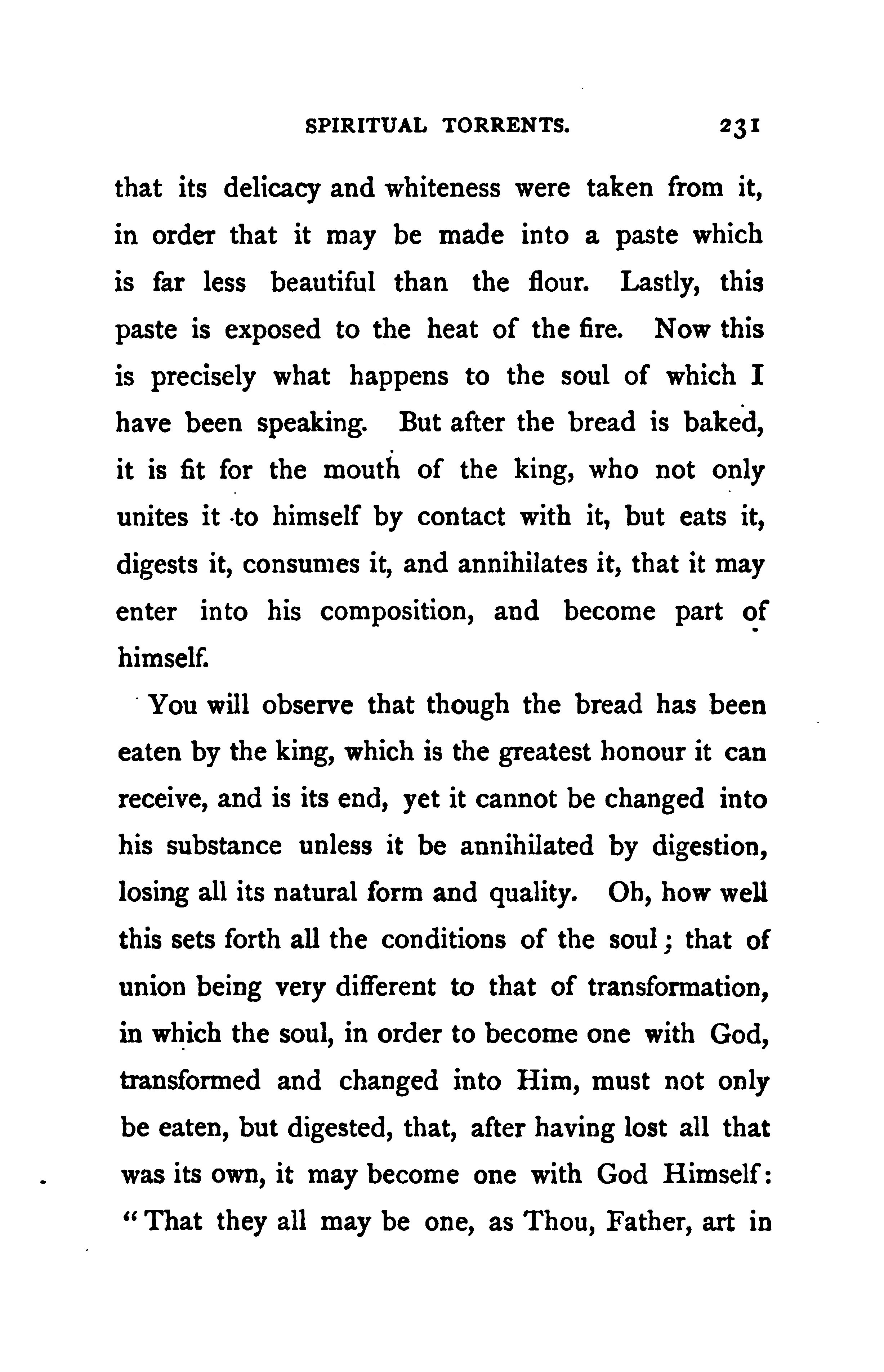that
its
delicacy
and
whiteness
were
taken
from
it,
in
order
that
it
may
be
made
into
a
paste
which
is
far
less
beautiful
than
the
flour.
Lastly,
this
paste
is
exposed
to
the
heat
of
the
fire.
Now
this
is
precisely
what
happens
to
the
soul
of
which
I
have
been
speaking.
But
after
the
bread
is
baked,
it
is
fit
for
the
mouth
of
the
king,
who
not
only
unites
it
to
himself
by
contact
with
it,
but
eats
it,
digests
it,
consumes
it,
and
annihilates
it,
that
it
may
enter
into
his
composition,
and
become
part
of
himself.
You
will
observe
that
though
the
bread
has
been
eaten
by
the
king,
which
is
the
greatest
honour
it
can
receive,
and
is
its
end,
yet
it
cannot
be
changed
into
his
substance
unless
it
be
annihilated
by
digestion,
losing
all
its
natural
form
and
quality.
Oh,
how
well
this
sets
forth
all
the
conditions
of
the
soul
;
that
of
union
being
very
different
to
that
of
transformation,
in
which
the
soul,
in
order
to
become
one
with
God,
transformed
and
changed
into
Him,
must
not
only
be
eaten,
but
digested,
that,
after
having
lost
all
that
was
its
own,
it
may
become
one
with
God
Himself:
"
That
they
all
may
be
one,
as
Thou,
Father,
art
in

